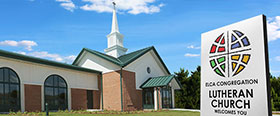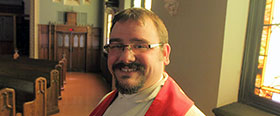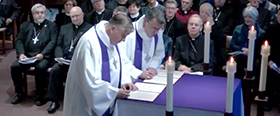The Rev. Paula M. Stecker, an ELCA missionary, works with the Lutheran World Federation Haiti office in communications and ecumenical relationships. To support Paula, or another of the ELCA’s nearly 225 missionaries, go to www.elca.org/missionarysponsorship.
We are in the midst of “The Month of the Environment” here in Haiti. The minister of the environment proclaimed it, allowing it to surround the approaching meetings in Rio de Janeiro, Brazil, called RIO+20. At St. James we are preaching on “The God of Green and Everything Else” and organizing ourselves as a recycling collection point.
A graph I recently saw plotted the level of a nation’s human development index against its ecological footprint and made me feel “naked” as an American. Ideally, there is a zone on that graph where all nations would enjoy an acceptable human development index and not use more than the per capita biomass the planet can offer in a sustainable manner. The zone in the bottom right hand corner is colored green and it is so empty. No nation is living there today. Several Latin American countries are close. Most nations live far outside that green zone. The U.S., like most European and North American nations, far exceeds its share of the earth’s sustainable resources. We are caught red-handed. Africa and other developing nations are far to the left of the mark for human development enjoyment, living off much less than their share of the earth’s natural resources. This is not a picture of reconciliation.
And here’s the thing: What if that green zone is the sweet spot? What if living there would actually be a foretaste of heaven? What if when Jesus says, “Love one another as I have loved you,” he was hoping we would discover ways to welcome one another home to that green zone?
Getting to that green zone on the chart means that corporations will have to be held accountable by moral agendas. Eco-justice will not be a corporate priority. Consumers must transform the ethical questions of ecology and justice into economic questions. And Americans are the world’s greatest consumers. Many Americans are Christian. We could lead the way, making choices for eco-justice. Imagine. What if the world knew we were American because we lived green?
Peace,
Paula Stecker











